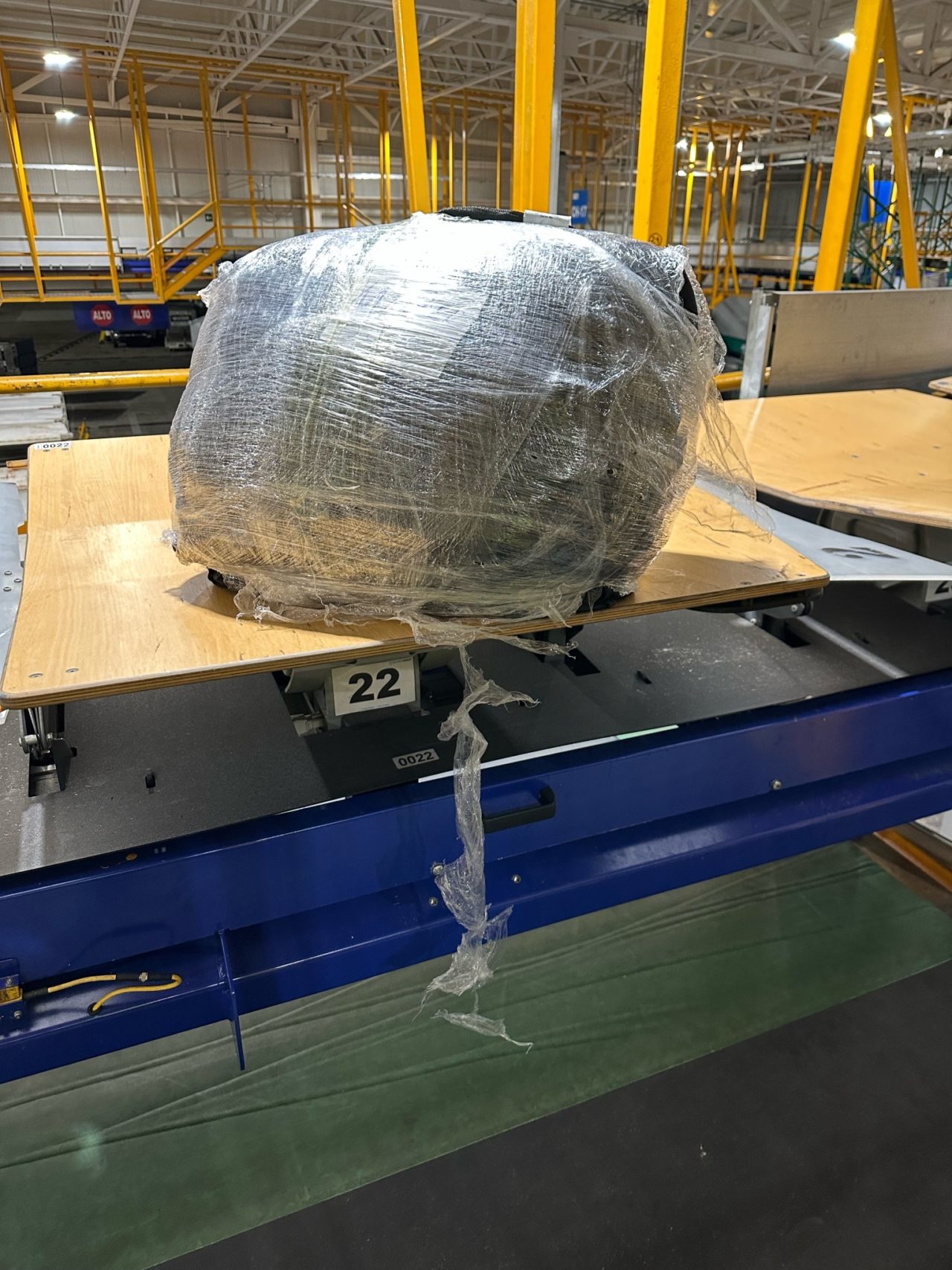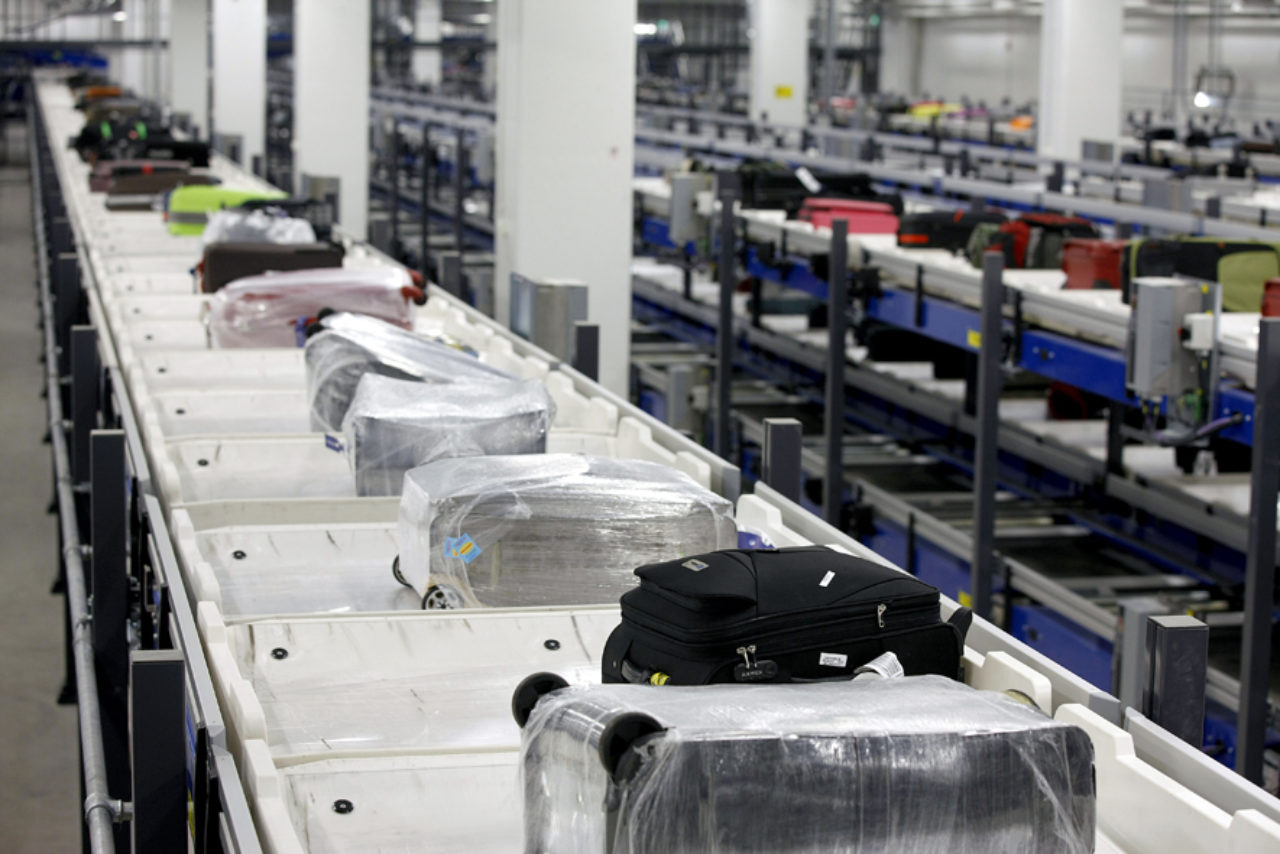In such scenarios, airport personnel must extract the bags from the trays manually, which can result in significant delays and obstruct the baggage handling process. This can lead to missed flights, misplaced luggage, and other inconveniences for travellers.
Besides the delays and disturbances caused by plastic-wrapped bags, they can also pose a safety risk to airport staff. When the bags become trapped, staff must extract them by hand, which can result in strains, sprains, and other physical injuries.
Training and guidelines vital
Many airports have recognised the need to train ground handling personnel in the proper handling of plastic-wrapped bags. They can either place the bags manually onto the tray (if they fit) or induct the bags on the out-of-gauge/oversized bag handling line. Round-shaped items should be exclusively handled through the oversize lines, and plastic-wrapped trolley bags should be allowed in the sorter only if they are loaded through tubs.
Signboards must be installed at the loading points to indicate the types of baggage that are permitted in the system and those that are not. Regular training sessions should also be conducted for check-in and ground handlers on the conveyable and non-conveyable baggage. This training must be ongoing and held at least once a year and more frequently, as staff turnover demands. In addition to these measures, airports can also invest in equipment upgrades to prevent bags from becoming stuck in the tilt-tray sorters. For example, some airports have installed anti-stick surfaces on the trays to prevent bags from getting entangled.






